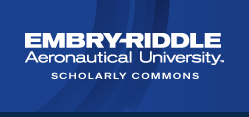Faculty Mentor
Dr. Taylor Mitchell
Abstract
In “Hydroponically Growing a Holistic Superfood Diet for Mars Exploration,” Project H.O.M.E. members conducted an experiment to help determine ways to provide future astronauts with a complete, balanced diet on a planet that does not receive as much sunlight as Earth. Sending massive amounts of food into space is incredibly expensive, takes up valuable spacecraft area, and is, overall, not a feasible way to provide astronauts with sustenance. Project H.O.M.E. has thus developed a hydroponic system to evaluate the growth and yield of various superfoods - including Moringa Oleifera, goji berries, and kale - under simulated Mars lighting conditions. Data suggests that these three plants are perennial hydroponic crops, which can be grown under reduced illumination, and are candidate food sources for Mars explorers. Based on the hypothesis that the growth of the superfood plants in simulated lighting conditions will be similar to their growth in regular lighting conditions here on Earth, Project H.O.M.E. members created a Dutch bucket, tower garden, and nutrient flow table indoor hydroponics systems to grow superfoods in a solar-powered 8x16ft greenhouse for the past 13 months. In conclusion, this project determined that the growth of superfoods using hydroponics systems would be a preferred farming method for space, demonstrating the incredible potential for future missions to Mars.
Recommended Citation
Pezzella, Marianna and Rosa Polonia, Ruben A.
(2022)
"Hydroponically Growing a Holistic Superfood Diet for Mars Exploration,"
Beyond: Undergraduate Research Journal: Vol. 6
, Article 3.
Available at:
https://commons.erau.edu/beyond/vol6/iss1/3
Included in
Food Biotechnology Commons, Other Plant Sciences Commons, The Sun and the Solar System Commons
